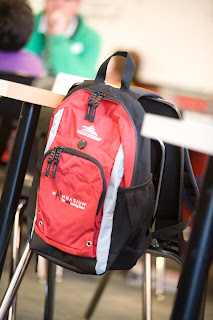Imagine this scenario.
One day a student arrives at the college or university of his choice for the first time as a freshman. He is so excited to start his new adventure as a college student, inevitably facing new challenges and meeting new people. Knowing that things would not come easy, but ready for all that was ahead of him, this student is confronted with the Mathematics Placement Exam to see what level of college math the student is qualified to take.
The results of the exam make it clear that the student is nowhere near ready for the course that will help him achieve college credit, an unfortunate situation that occurs far too often with incoming college freshman. Before taking the math course of his choice, he will have to revisit previous math concepts by taking a
non-credit course, delaying his progress toward college graduation.
This is not an uncommon situation. Nor is it a situation without a solution, as we will see in a minute. This is a reality that many students go through when entering college, causing them to give up on potential careers in fields that relate to math. We want to stop this from happening early on! The problem can be fixed in grade school.
With that in mind, I have created a Back to School Checklist consisting of three simple questions:- Are your child's math skills ready for the coming school year?
- Is your child being placed in the right math class?
- Do you have resources identified in case your child needs extra help with math?
To properly gauge your child's math capabilities, ask them the appropriate question for the corresponding grade-level they just finished:- Second Grade: Can you efficiently compute 7+8+9-10?
- Third Grade: How much is 99+99+99? This should be done mentally!
- Fourth Grade: Count from 0 to 7 by 1 3/4?
- Fifth Grade: Which is greater: 9/10 or 18/19? Explain.
- Sixth Grade: Half way through the second quarter, how much of the game is left?
- Seventh Grade: How much is 6 1/2 % of 250? Explain.
- Pre-Algebra: On a certain map, 6 inches represent 25 miles. How many miles does 15 inches represent? Explain.
- Algebra: Solve 4x+3=0. This should be done mentally!
Make sure these questions are solved as efficiently as possible because if the appropriate measures are taken, higher grades will only be the beginning of your child's math experience. Your child will have an improved attitude towards math, they will be better prepared for future math classes, and they will be prepared for college level work when the time comes.
And from college... Who knows where math can take your child?











